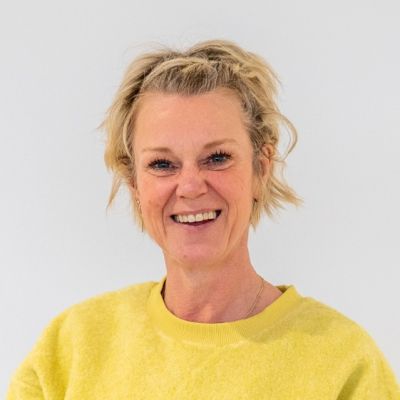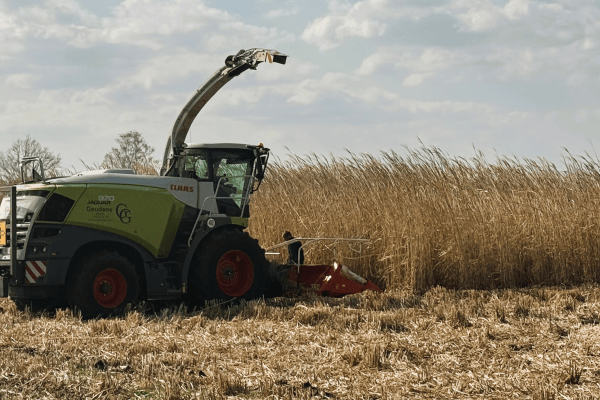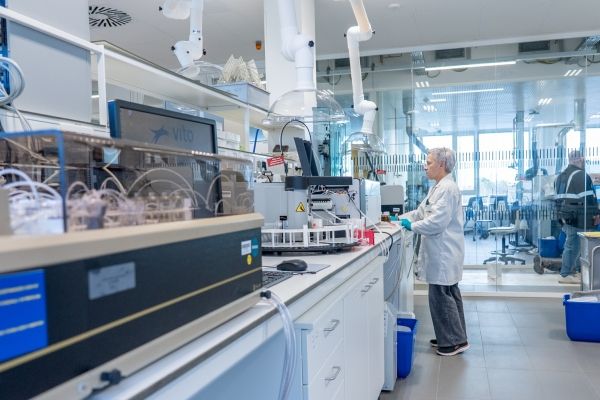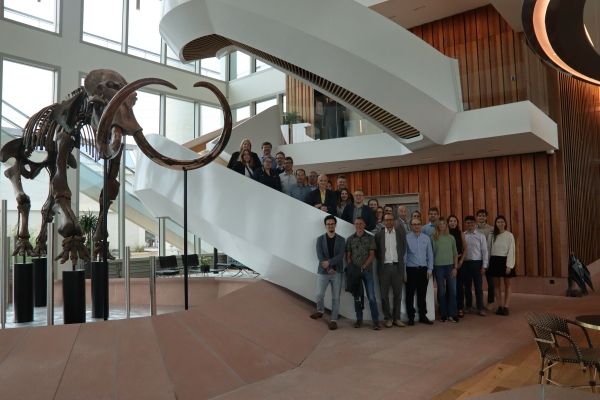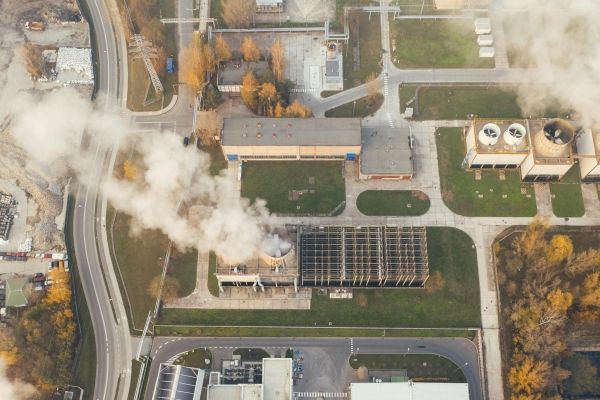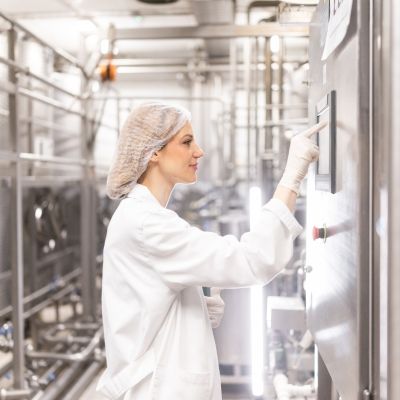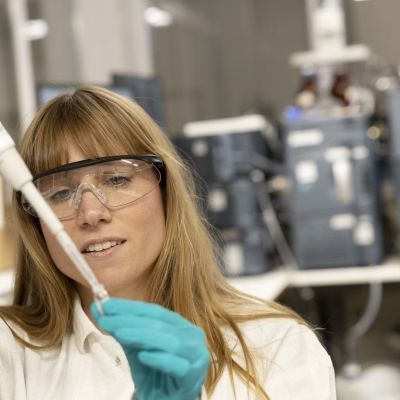VITO employee in the spotlight: Griet Jacobs
Griet Jacobs (42) is very familiar with VITO’s analytical labs. She has been conducting and coordinating chemical analyses in terms of health and the environment, for government and industry, for twenty years there. Nonetheless, this never feels like routine work. ‘Clients come to us with challenging assignments, not with standard questions. That feels very satisfying.’ Last summer, Jacobs was in the middle of the PFAS storm. ‘We had to be constantly alert. I didn’t get to take much leave.’
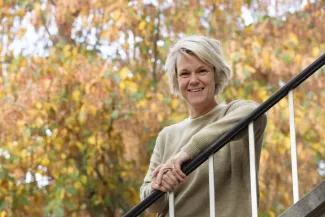
The crisis around PFOS pollution in Zwijndrecht began in early summer. VITO was called upon for analyses of this harmful substance in the PFAS family, in soil, air and water as well as in the blood of local residents. What was that period like?
‘It was an extremely busy time. Although we did have a lot of expertise on PFAS monitoring in-house, we still had to develop a whole range of new measurement and analysis methods and get them ready, including for detecting these substances in the air. The method for (blood) serum analysis also needed to be accredited, which meant extra administrative requirements.’
‘But we withstood the storm, even though the external pressure was very high. This is understandable, of course; people were worried and wanted to get the measurement results as soon as possible. We sometimes had to disappoint them – some analyses are complex and do take time. I normally take a few weeks leave in the summer. There was no chance of that then, even though we were taking turns to be on-call.’
‘My aim is to be constantly surprised.’
You have been in the lab yourself less often than you used to be in recent years. Today, you are more likely to be managing lab assistants. Do you not miss the lab work?
‘I now have more contact with clients coming to us with a particular question than I used to, and that suits me. I draw up quotations and map out a potential solution for them, which we then translate into practical lab work along with our team (twenty lab assistants). My own lab experience does help me in those discussions with clients.’
‘This close follow-up along with the client is what makes us unique compared to routine labs. Quality is our core focus. If there is a delay to an analysis, we communicate this clearly too. We’ve noticed that clients appreciate this. They trust us.’
You started at the Health unit in 2001. In 2014, you moved to the analytical lab in the Separation and Conversion Technology (SCT) unit. Do you feel you still have enough challenge?
‘The advantage of working for VITO is that our clients never come to us with standard questions, but with challenging assignments. If something doesn’t work right away, that can be frustrating, but of course it feels very satisfying afterwards.’
VITO is also an important reference lab. That means you are in the vanguard of chemical analysis technology.
‘We develop new measurement and analysis methods and ensure the existing ones are improved and ready for use. We help the accredited labs apply them correctly. The fact that we’re doing this in some many different fields (from water to soil, waste and compost) shows that our knowledge and expertise is very broad. That know-how is distributed among our team, which holds continual discussions. This team spirit also ensures that we can often come up with something surprising and creative.’



